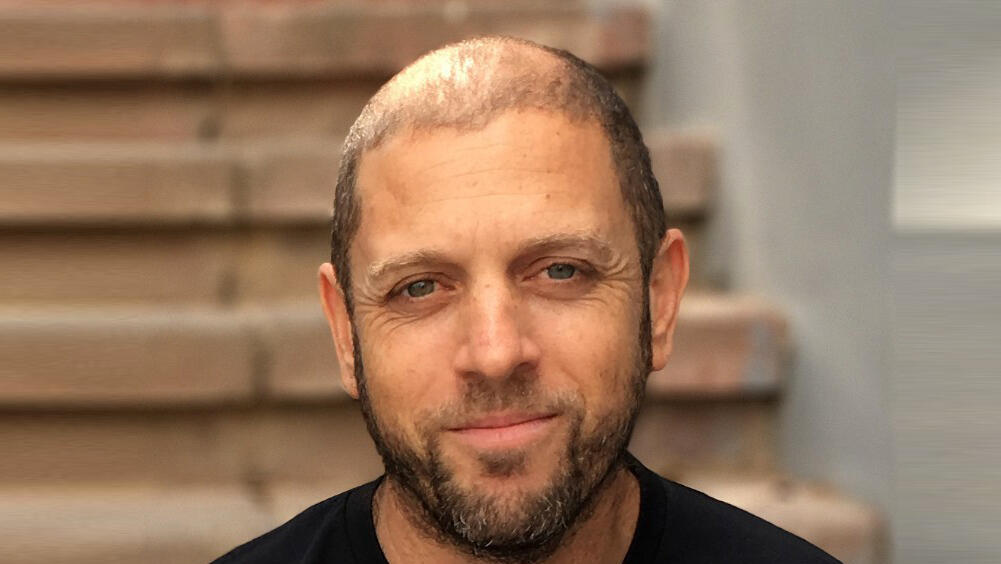
Big fish leave small ponds: When startup CEOs move to large companies
Whether following a successful exit or due to the closure of their startup, many CEOs find themselves moving from running a small company to management positions in large corporations. "As CEO of a startup, you are used to being the ultimate decision maker. If you need to change direction, you can make a decision in an instant, and it's done. In a large company, there are more processes, more stakeholders, and more competition for the organization's resources."
The life of a startup eventually leads to one of two outcomes: a successful exit or the closing of the company. At these moments, CEOs of startup companies often transition to work in large corporations.
This transition opens new doors for them. On one hand, they can focus on their professional work and leave behind the worries of raising funds or the daily struggles of survival. On the other hand, they must adapt to the complex bureaucracy and the slower pace of a large corporation, which is very different from the fast-paced dynamism of a small startup.
At a time when obtaining funding is the main challenge for startups in Israel (according to the Innovation Authority's survey of high-tech companies conducted in March and April 2024), which may lead to the closure or acquisition of companies, we delved into understanding this transition from being CEOs to working in a corporation. We interviewed four CEOs formerly from startup companies who moved to the position of VPs in large technology companies about their personal experiences, advantages, disadvantages, and challenges along the way.
2 View gallery


(From left) Guy Flecther, Sagit Manor, Shai Alon
(Photos: Orca Security, Michael Soo Capturethelooks, PR)
Shai Alon, Director of Innovation in Artificial Intelligence at Orca Security
After the company he founded, RapidSec, was sold to Orca Security, Alon transitioned from being a CEO co-founder to his current position. "I've had the entrepreneurial bug for as long as I can remember. The thrill of building something from scratch, the freedom to change direction at a moment's notice—it is very tempting to be the master of yourself and your destiny. During my university years, I started small ventures to generate income on the Internet. Then I worked at a startup called Totango to learn how to build a startup practically. From there, I went on to establish Chat Leap (an AI-based chatbot product) where I served as the CTO. My last role was as the founder and CEO of RapidSec, tackling web security and APIs.
We built an amazing product at RapidSec. We were fighters, agile, hackers, and masters of our destiny. But there was a ceiling; the market was small and niche. You can't be a ballistic missile when you're confined inside a closed room, and that's how it felt. Then came the purchase offer from Orca Security. Selling was the right step for everyone: the employees, the investors, the entrepreneurs, and even the customers," he says. Despite feeling that the sale was right, Alon found giving up the CEO title difficult and had thoughts about the future. "What tipped the scales for me was Orca's ambition, a company that decided to go all out and big. The management team and especially the founders are superstars, and I knew I could learn a lot from them."
Although he is content with his decision, the transition to a management role was not smooth. "As CEO of a startup, you are used to being the ultimate decision maker. If you need to change direction, you can make a decision in an instant, and it's over. In a large company, there are more processes, more stakeholders, more competition for the organization's resources. You learn to internally promote your ideas, build consensus, and navigate a more structured environment. Sometimes organizational processes can be frustrating, but this was a crash course in organizational dynamics and strategic influence. They say startup entrepreneurs have to spit blood until the company takes off. But even in a big company, it's like that, sometimes even more. Because the organization already has many large customers, it is impossible to replace the solution for them overnight. I have released many products at Orca in the last two and a half years, and none of them were released with the ease of an early-stage startup," he says.
Alon finds an advantage in being able to focus as a VP on one specific challenge compared to spreading energy across several fronts as a CEO. "Being CEO of a startup is chaotic. At every moment, there is a demo to give, a customer to close, investors to sign, legal contracts with lots of red markings, a product to characterize, a product to test. A big mess. But when you move to the position of director, suddenly everything is much more controlled. You are still responsible for a lot (and maybe even more), but in a narrower range of engagement, creating focus and time. For example, when the wave of artificial intelligence came, I saw the opportunity to build something groundbreaking at Orca, and I was given the reins as the innovation director in artificial intelligence. I define a goal, build a dedicated team of experts, and together we act like a commando unit that goes out on strategic missions while we are surrounded by a lot of experience and knowledge within the organization. I absorb insights from experienced managers, learn from processes that take years to build, and build a powerful network of contacts. This is something that is not always possible in the bubble of a small startup."
On a personal level, the transition was not easy and required adaptation, says Alon. "As the CEO of a startup in Israel, you live in an amazing ecosystem of mentorship and knowledge sharing with a thirst to help you. People who have already made, built, and sold, investors, entrepreneurs, CEOs, experts, and expertise are happy to share their teachings without any personal gain. It's an amazing effect that sets our ecosystem apart, even compared to Silicon Valley. After the sale, it disappeared; I focused more on Orca's challenges and put this amazing ecosystem aside for the time being. Today, I find satisfaction on the other side of the divide and help many startups who are thirsty for guidance, connections, and tips on the way to realizing their dreams." Although he does not see himself returning to the position of CEO of a startup anytime soon, he declares, "My romance with the world of startups is far from over."
Sagit Manor, CFO at the global Israeli fintech company Nayax
Manor's path is unusual in the Israeli startup scene. She started in a corporation, moved to a startup, and returned to a corporation again. For years she worked at Verifone, a public company that at its peak had sales of 2 billion dollars. She then joined the startup Nyotron after investors who knew her asked her to join as CFO. After two months, she was asked to take over the position of CEO, which she held for four years until the company was sold to Acronis. After that exit, Manor moved on to work as CFO at Nayax. "There are many differences between the role of CEO of a startup and C-Level role at a large company. First of all, you go back to sleeping at night. As CEO, I did not sleep for four years. Worrying about money, generating leads, sales, customers, the variety of products, and more. The transition to Nayax after the exit was a kind of homecoming—to finance, to the field of payment, to a large public company. The startup holds a significant part in my professional life today. The real challenge in creating high and real waves in the huge ocean of the startup world is the need to rise above everyone, which requires crazy creativity and thinking outside the box. For the most basic understanding that, in the end, people do business with people and how to bring my personal authenticity wherever I am," she says.
The transition from working in a corporation to a startup and back to a corporation allowed her to bring management capabilities and a system-wide strategic vision to various positions. "As CFO, I bring the ability to manage the 'now' alongside the CEO, who largely manages the future. My point of view is not only focused on the financial field but from a broad business perspective on how the business will look in six months, 18 months, or three years." On a personal level, the transition to the corporation was easy, she says, because she was at peace with the decision to return to fintech and finance after the exit. "The difficulty was not at the professional level but in the very short time frame in which I had to gain knowledge and a deep understanding of the variety of products, the competition, the quality of the reports, and the investors. Exactly two months after I joined, I published financial reports, the first after the IPO in Tel Aviv, and I represented the company as if I had been there forever."
Although she enjoyed working as a CEO, she does not aspire to head a startup in the future. "That was never the ambition. Almost all of my professional life I was in fintech and payment, where we made money from money. I would like, sometime in the future, to find another field where there is a great contribution to the community, to the environment, to something bigger than us," she says.
Guy Flechter, former founder and CEO of Cider Security, which was sold to Palo Alto Networks
In November 2022, Palo Alto Networks acquired Cider Security, the company that Flechter founded with Daniel Krivelevich, where he served as CEO. Following the acquisition, Flechter moved to work at Palo Alto Networks, leading the application security field of the Prisma Cloud product. "Naturally, the daily conduct is very different in a company of a few dozen employees compared to a corporation of 14,000 employees. The processes and decision-making processes are fundamentally different and require a lot of understanding on a personal level of how to conduct oneself, how to move things, and who to contact for everything," he says. The main difference, as he sees it, is in the level of responsibility. "The position of CEO requires a wider range of responsibilities. There are fundamental differences in the manner of conduct within the company and in how you lead and implement things within the company."
The transition was difficult, Flechter admits. "It was strange. It's a transition that forces a lot of internal changes in the way we conduct ourselves. You go from being the CEO of a company with a wide decision-making scope and areas of responsibility, and all at once, everything changes. It was a big challenge on a personal level, and I believe most CEOs experience it when they move to such a company. As a VP within a huge organization, the ability to make decisions is much more complex and requires much more consideration of many other factors in the process (or that should be in the process). A CEO should also consider everything this way and take into account others' opinions. The size of the organization also greatly influences not only the position itself: a VP in a small organization has a different ability than a VP in an organization with 14,000 employees."
In the future, he believes he will build another company. "It's definitely something I'm very motivated to do again."
Yonatan Snir, VP of Global Marketing, Stratasys
In 2015, Snir and Aryeh Zaks founded CliClap, an AI-based solution for generating leads for B2B companies. The company raised $2 million and was active for about five years. Shortly before the outbreak of the coronavirus in Israel, the company started working on a second recruitment round, but then everything stopped, making it very difficult to raise funds. "We made immediate changes to reduce expenses and the rate of cash burn. We stopped developments and invested mainly in marketing and sales, but it was not enough, so we decided to sell the assets and move on," he says. At this point, he was looking for the next opportunity when he received an offer from Stratasys. "The decision was difficult—whether to leave the world of startups, whether to change direction from marketing to another field, and, of course, which company brings higher value and pride in working for it. I progressed simultaneously with several options, and during the process, I realized that Stratasys was my preferred choice," he says.
The big advantage of startups over large companies is the latter's ability to move forward quickly while making changes and adjustments. "Some compare a startup to a racing boat and a big company to a cargo ship. For startups, the ability to run fast and adapt to changes is a survival necessity, while in an enterprise, this is an almost impossible task. This is one of the main reasons, in my opinion, that startups succeed in competing with large companies. However, entrepreneurs who founded and managed a startup, built a product, made pivots, raised funds, marketed, sold to customers, provided service, and handled many significant areas in the organization, bring added value and a unique DNA beyond their professionalism in the specific field they lead in the company. Entrepreneurs bring an innovative and creative approach to solving problems, which can lead to the development of new products and services and creative adjustments in existing processes. Entrepreneurs are not afraid of failure and know how to fail quickly and correct, an advantage that allows them to achieve results more quickly," he says.
The challenges are mainly related to size and pace. "When transitioning from a startup to an enterprise, there is always an initial shock arising from the need to deal with the size, the need to meet many new people, tools, processes, interfaces, regulations, and above all, the difficulty of moving things at the pace to which you have become accustomed as an entrepreneur. The connection between the entrepreneur and the manager is critical to the success of the recruitment because most entrepreneurs, especially those who were CEOs, got used to independence in making decisions that affect their ability to move quickly and efficiently. Also, an enterprise often has more complex organizational politics than a startup. The entrepreneur has to learn to deal with complicated interpersonal relationships and different needs of diverse departments."
On a personal level, the transition for Snir was not easy. "You have to come prepared and be especially attentive. The first months in the organization will significantly affect your success, and the way you enter the position is critical. On one hand, there is an expectation that you will get down to business as quickly as possible, and on the other hand, the field is new, the people are new, and the organizational culture is different." Though not a goal right now, he does not rule out the possibility of being CEO of a startup company again in the future. "It will happen if I spot an interesting business opportunity and the timing is right for me," he says.














